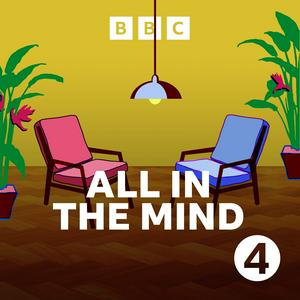FND - the most common disorder you’ve probably never heard of; political polarisation; All in the Mind Awards judge ZeZe
Functional Neurological Disorder, or FND, is the most common disorder you’ve probably never heard of. Some say it might be as common as MS or Parkinson’s and yet it’s not well known even by many medical professionals. It can cause seizures, paralysis, convulsions and changes in sensation, as well as pain, fatigue and memory difficulties.It’s caused by a problem with the system in the brain that connects us consciously into our bodies, leaving sufferers unable to access their bodies properly. Because it doesn’t show up on scans and tests it is often not diagnosed effectively, and patients can face difficulties accessing the help they need or even being believed that their symptoms are real.Claudia Hammond sits in on a consultation at the Maudsley Hospital between Emma, a new patient who is having exactly those problems, and Mark Edwards, Professor of Neurology and Interface Disorders at King’s College London. She also meets Callum Alexander, a recovered patient who now volunteers for the charity FND Hope. He was referred by Mark for specialist neurophysiotherapy with Glenn Nielsen at St George’s University Hospital, which had immediate results. Glenn tells us that FND can cause the brain to become excessively focused on actions are normally automatic, such as walking, and that redirecting the brain’s attention can be one way of alleviating it.Meanwhile, Emma is relieved she finally has a name to put to her condition and Mark is pushing for more positive diagnoses of FND.Back in the studio, Claudia is joined by Kavita Vedhara, Professor of Health Psychology at Cardiff University. With increasing polarisation in the US in the run up to the forthcoming presidential election, she presents a study that sheds light on how we might view people who are more nuanced in their approach to controversial topics.You might expect people who are able to express both sides of an argument to thrive in social situations. However, this new research suggests that people with nuanced views are seen as less likeable than those with polarised views, even by those who agree with that person’s ultimate position. How does that impact our chances of being able to have reasoned political debates?The 2025 All in the Mind Awards are now open for nominations. You can nominate individuals, professionals and groups who have helped you in your hardest times.Claudia catches up with ZeZe Sohawon who nominated her psychiatrist Dr Claire Purcell for an award in 2021. Since then ZeZe has set up a youth autism and mental health charity, Emotion Dysregulation and Autism, helping autistic young people who struggle with their emotions leading to mental health problems. The charity is about to start delivering a peer support programme in Birmingham hospitals, and she’s done all of this while studying for a Neuroscience degree. This year she’s a judge for the All in the Mind Awards and tells Claudia why she thinks people should take part.You can find out more about the awards in the programme or by going to bbc.co.uk/radio4/allinthemind where you’ll also find full terms. Entries close 8th January 2025 at 1pm.Presenter: Claudia Hammond
Producer: Ben Motley
Studio Manager: Emma Harth
Production Coordinator: Siobhan Maguire

